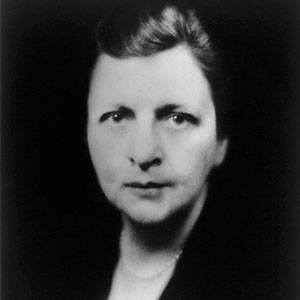Frances Perkins was the first female to serve in the cabinet of a U.S. President. As President Franklin D. Roosevelt’s Secretary of Labor, she helped craft many of the New Deal’s employment programs.
Early Life and Public Service
Frances Perkins was born on April 10, 1880, in Boston, Massachusetts. She graduated from Mount Holyoke College and earned her master’s degree from Columbia University in 1910.
The same year, Perkins became Executive Secretary of the New York City Consumers League. She gained notoriety for her tireless advocacy for city workers, including sanitary regulations for bakeries, fire safety improvements for factories, and laws limiting the working hours for women and children. Perkins was blocks away when the Triangle Shirtwaist Factory fire claimed the lives of 146 workers. She later said it was “the day the New Deal was born.”
On the recommendation of Theodore Roosevelt, New York City Mayor Al Smith appointed Perkins secretary for the New York Citizens Committee on Public Safety. In 1918, Mayor Smith named her to the State Industrial Commission, and she eventually became the chair. She was the first woman to be appointed to an administrative position in New York state government. In 1928, Franklin D. Roosevelt promoted her to Industrial Commissioner where she worked to improve workplace safety and promote social programs. During her tenure, she became one of the most respected labor officials in the country.
Secretary of Labor
When FDR became President, he asked Perkins to join his cabinet as Secretary of Labor. “I came to Washington to work for God, FDR, and the millions of forgotten, plain common workingmen,” she later stated.
After assuming her position, Perkins provided Roosevelt with a list of policy initiatives, which included: a 40-hour work week; a minimum wage; unemployment compensation; worker’s compensation; abolition of child labor; direct federal aid to the states for unemployment relief; Social Security; a revitalized federal employment service; and universal health insurance.
Perkins played a pivotal role in the creation of social security and unemployment insurance, as well as the enactment of federal laws regulating child labor and establishing the federal minimum wage. Of her initial priorities, she accomplished everything but universal health coverage.
When FDR died in 1945, Perkins was the country’s longest-serving labor secretary and one of only two cabinet members to serve the entire length of his presidency. President Harry Truman subsequently nominated her to serve on the United States Civil Service Commission, which she did until 1952. After retiring from public service, she continued to lecture and teach. Perkins died in 1965 at the age of 85.









